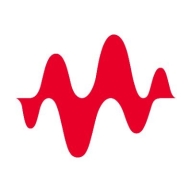

Find out what your peers are saying about Tricentis, Katalon Studio, OpenText and others in Regression Testing Tools.

| Company Size | Count |
|---|---|
| Small Business | 23 |
| Midsize Enterprise | 24 |
| Large Enterprise | 72 |
Tricentis Tosca offers model-based testing that supports both technical and non-technical users through a user-friendly interface, enabling scriptless automation and seamless integration with UI and non-UI applications.
Tosca's modular approach enhances test maintenance and reuse while delivering comprehensive automation for diverse testing environments. Backed by risk-based testing and automated data management, it supports end-to-end testing across API, SAP, and desktop applications. Tosca's integration capabilities extend to environments like Salesforce, PHP webshops, and mobile apps, effectively enhancing Agile team workflows. Despite its strengths, room remains for improved reporting, object recognition, and more efficient upgrade processes. Enhancing documentation and mobile testing support could further elevate its functionality for many.
What key features does Tricentis Tosca offer?In retail, Tricentis Tosca automates inventory and transaction testing, ensuring efficient system updates. Financial services employ it for regulatory compliance through automated test scenarios in mainframe and PDF environments. Telecommunication companies utilize Tosca for API testing, aligning services across network platforms seamlessly.
We monitor all Regression Testing Tools reviews to prevent fraudulent reviews and keep review quality high. We do not post reviews by company employees or direct competitors. We validate each review for authenticity via cross-reference with LinkedIn, and personal follow-up with the reviewer when necessary.